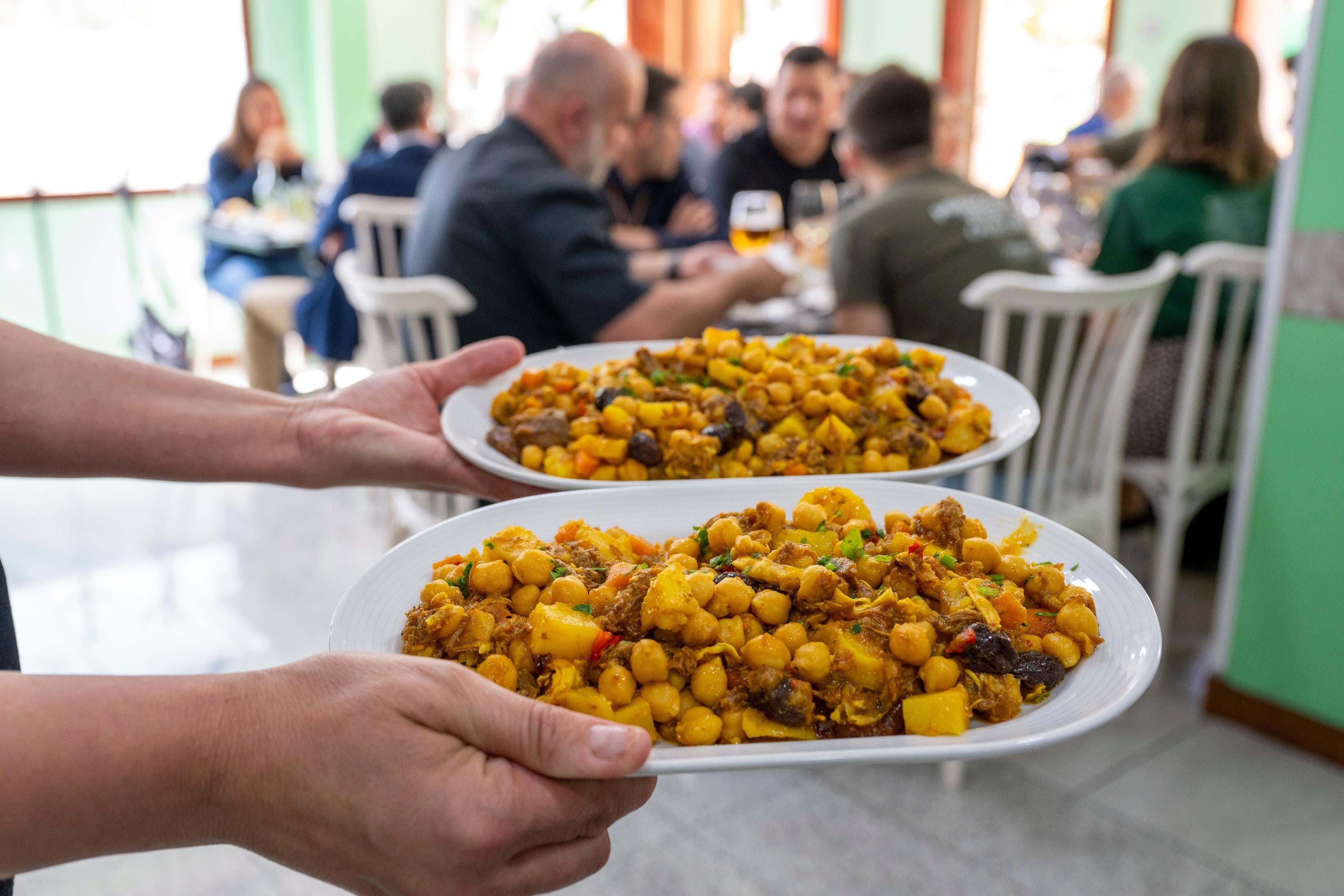How rural gastronomy can help in the fight against depopulation in Spain
Terrrae, the culinary congress held recently in Gran Canaria, called on people to support and defend traditional village recipes and produce
Jesús Lens
Granada
Monday, 6 May 2024, 15:09
The Terrae culinary congress organised by Spanish media group Vocento's gastronomy division, which has recently taken place in Gran Canaria, began: "We rural chefs are proud of the culinary traditions and cultures of our region. Our gastronomic identity is a faithful reflection of these traditions and of the villages in which we live and work. Gastronomy is culture, one of the main tourist ambassadors and a generator of wealth and employment".
A declaration of intentions that goes beyond rhetoric according to what we saw, said, heard and ate during the three days of a congress that invited us to reflect, but also to change, to take action.
"We recognise the value of small producers and processors as a fundamental part of rural gastronomy and we are committed to making their work visible and do everything possible so that they can earn a living with the dignity they deserve. We are committed to locally produced products, we will promote the sustainability of production methods, seeking to recover the products of our region".
Camino de la Huerta restaurant in Alomartes
Therein lies the key of the symbiotic relationship between local producers and the restaurant trade. Bringing these reflections home, I took the opportunity to ask Vicente Jiménez, owner of the Camino de la Huerta restaurant in Alomartes (Granada province), who has just finished a series of days focused on the gastronomy of his area; the western side of Granada province.
Local recipes are based on asparagus, Montefrío cheese, trout and caviar from Riofrío, oil from the Poniente's own Lucio olive trees and a tartar of sausage made with the meat from pigs reared in the region.
"We work with asparagus, broad beans and artichokes in season. As an aperitif we have fried broad beans with ham and fried egg foam with mashed potato with cream," the chef explains.
In this sense, the Terrae declaration continues: "we are committed to respecting seasonal products, the cycles of nature and to always offer precise and true information about the products we use. Furthermore, we will encourage the responsible and sustainable consumption of animal and plant species."
Vicente tells me about some of the local sausages that we should try. He goes on to talk about some of the seasonal and local dishes served at Camino de la Huerta, such as the grilled artichoke confit, stuffed Riofrío trout smoked in the restaurant and Montefrieño cheese emulsion, or a special version of the area's traditional asparagus soup, made with shrimps and hard-boiled egg.
"We have been inspired to make a very cold gazpacho to which we have added shrimp from Motril and it has been very well received by the customers," he points out.
During the three days of Terrae I had the opportunity to attend talks and presentations, but I also had a multitude of impromptu and informal conversations in which dozens of rural chefs from Spain and Portugal talked both about the difficulties of the path they have chosen and the benefits, possibilities and competitive advantages it offers.
The Gran Canaria Declaration went on to point out, after stressing the importance of a regulation that facilitates the marketing of rural products: "We commit to using all the social awareness-raising capacity at our disposal to defend life in the villages and to make the value of rural kitchens and producers known in urban environments".
How important it is to raise awareness and ensure that there is a connection between the countryside and the city and that those products are served in the best urban restaurants: local cheeses and wines, shrimp from Motril, sturgeon from Riofrío and artisan bread and desserts made with tropical fruits, for example.
In accordance with the final conclusion of the Gran Canaria Declaration: "We encourage all chefs, consumers, producers, suppliers and entrepreneurs in the sector, journalists, researchers, critics, artists and thinkers to become agents of change and to support the promotion of the gastronomy of the villages."
